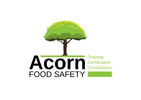|
Is a scientific discipline describing handling, preparation, and storage of food in ways that prevent food borne illness. This includes a number of routines that should be followed to avoid potential health hazards. In this way food safety often overlaps with food defence to prevent harm to consumers.
The tracks within this line of thought are safety between industry and the market and then between the market and the consumer. In considering industry to market practices, food safety considerations include the origins of food including the practices relating to food labelling, food hygiene, food additives and pesticide residues, as well as policies on biotechnology, guidelines for the management of governmental import and export inspection and certification systems for foods. In considering market to consumer practices, the usual thought is that food ought to be safe in the market and the concern is safe delivery and preparation of the food for the consumer. Food can transmit disease from person to person as well as serve as a growth medium for bacteria that can cause food poisoning. In developed countries there are intricate standards for food preparation. The five key principles of food hygiene that we all should adhere to are; 1.Prevent contaminating food with pathogens spreading from people, pets, and pests. 2.Separate raw and cooked foods to prevent contaminating the cooked foods. 3.Cook foods for the appropriate length of time and at the appropriate temperature to kill pathogens. 4.Store food at the proper temperature. 5.Do use safe water and safe raw materials. Comments are closed.
|
Acorn TCCA qualified Food Technologist and Accredited Trainers providing technical support and accredited training courses in all aspects of Food Safety Archives
January 2018
Categories |
HoursMon - Fri: 9am - 5pm
|
Telephone+44 7516 090911
|
|
